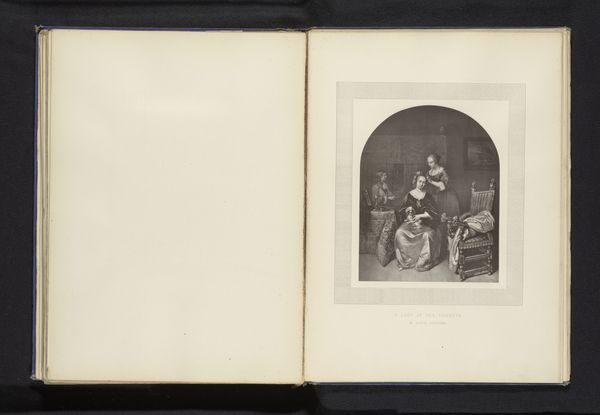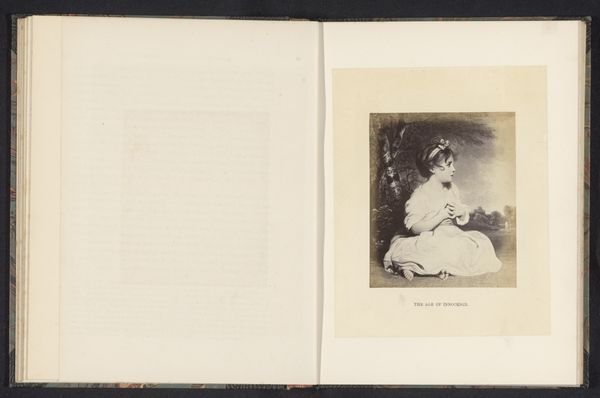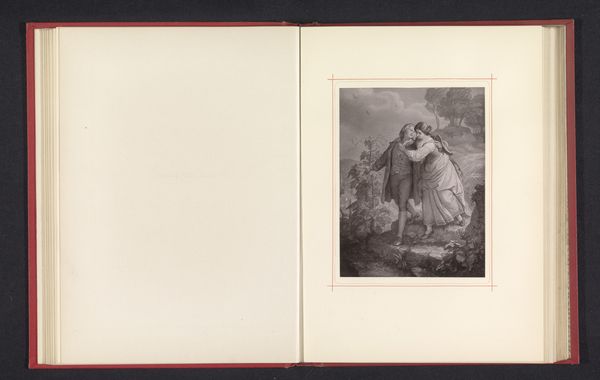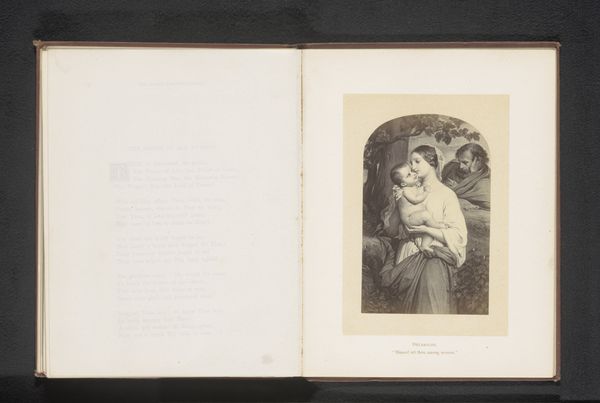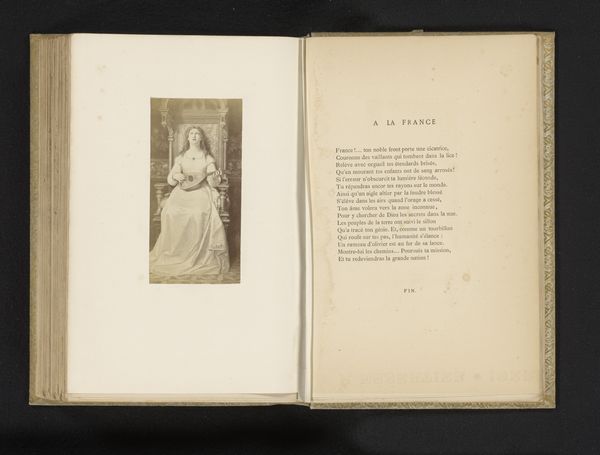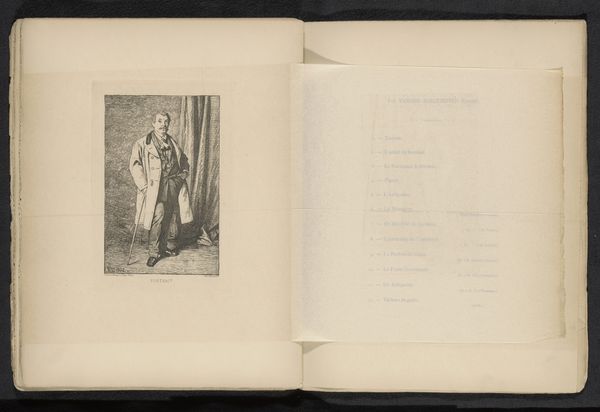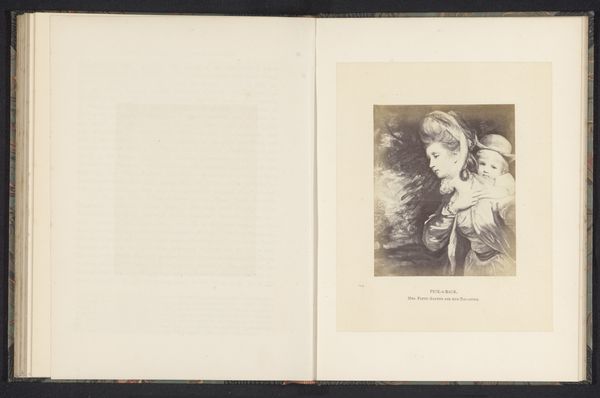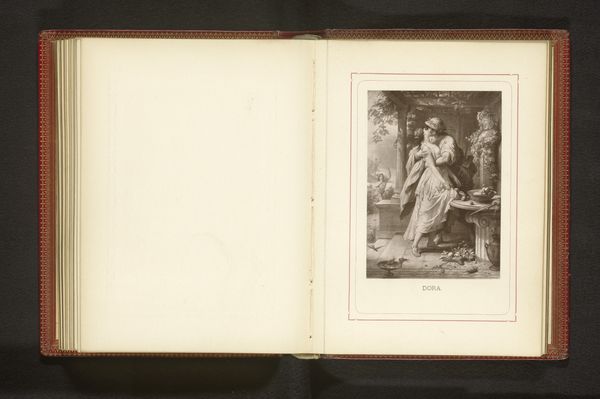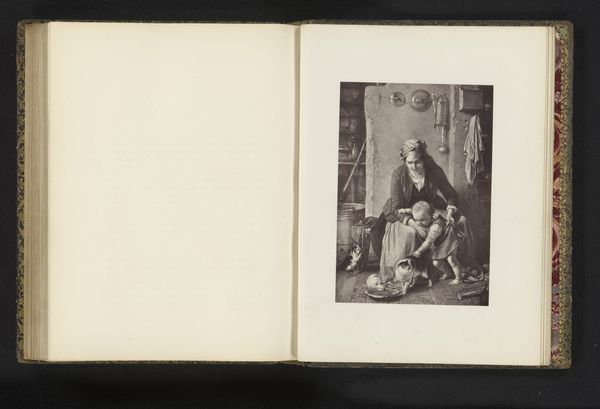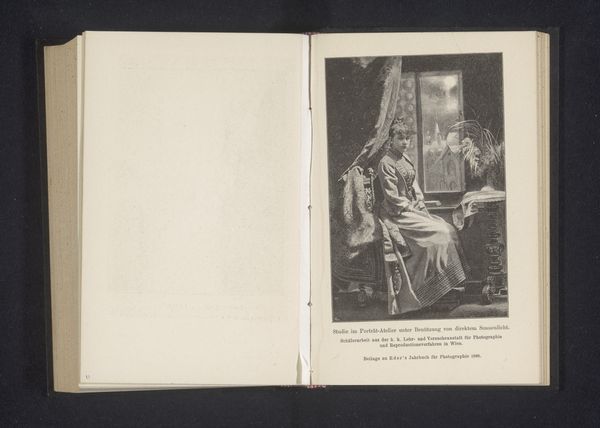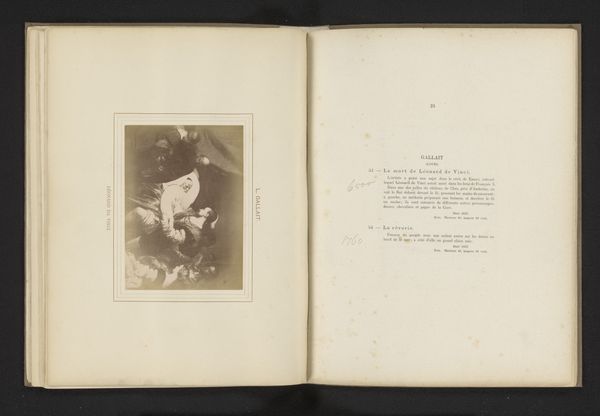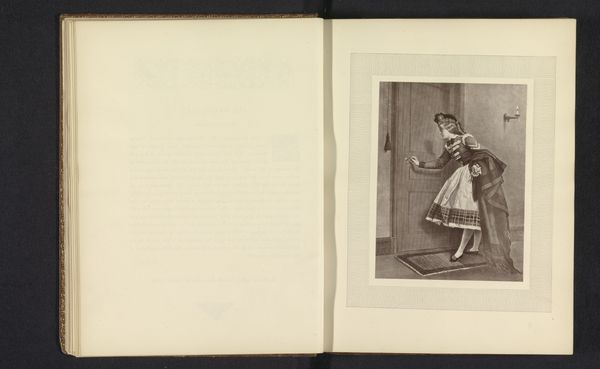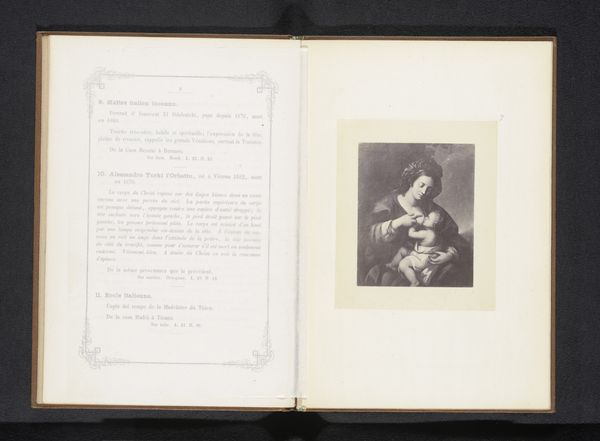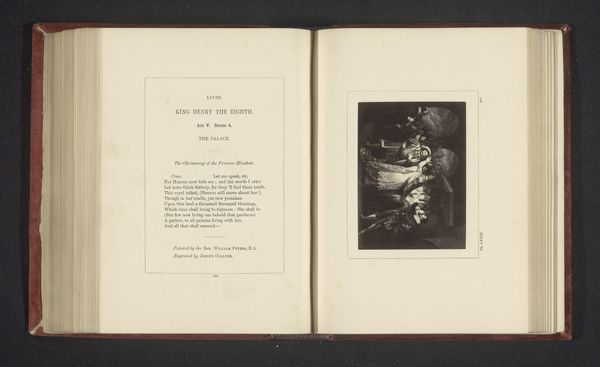
Fotoreproductie van een prent naar een schilderij met een meisje dat haar vinger wil aflikken door Fritz Zuber-Buhler before 1874
0:00
0:00
#
aged paper
#
homemade paper
#
paperlike
# print
#
hand drawn type
#
hand-drawn typeface
#
thick font
#
genre-painting
#
handwritten font
#
academic-art
#
thin font
#
historical font
#
small font
Dimensions: height 120 mm, width 97 mm
Copyright: Rijks Museum: Open Domain
Editor: Here we have a phot reproduction of a print after a painting, "Girl Licking Her Finger" by Fritz Zuber-Buhler, made sometime before 1874. It seems to be glued into a book, and it strikes me as… oddly staged. What’s your take? Curator: The materiality of this work immediately grabs my attention. It’s not just the image itself, but the layering – the initial painting, then the printmaking process to reproduce it, followed by its photographic reproduction, and then being bound in a book. We have to ask, how does this reproduction, this layering of media, change our relationship to the original? Editor: That’s interesting. So, it’s not just the image of the girl, but how that image is disseminated? Curator: Exactly! Consider the socio-economic context. The proliferation of prints made art accessible to a wider audience, but what did that do to the status of the "original" painting? Photography adds another layer, offering an aura of objectivity while also being manipulated. Editor: So, it's like the piece is less about the girl and more about… the art market of the time? Curator: Precisely. Look at the print itself. How do its physical characteristics – the paper, the ink, the printing technique – speak to the means of its production and distribution? Consider what this process does to notions of authorship. Who is the true creator here – the painter, the printmaker, the photographer, or the binder? Editor: That really gives me something to consider. I didn’t expect a simple image of a child to open up so many questions about the art world itself! Curator: Indeed. By looking at the materials and processes, we see the art world itself, its modes of production, and the consumption of images within a particular social context.
Comments
No comments
Be the first to comment and join the conversation on the ultimate creative platform.
